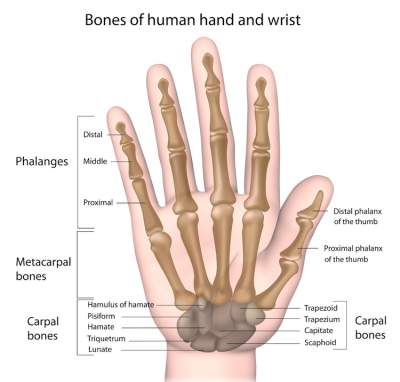Hand Surgery in Chicago
Find the best clinics for Hand Surgery in Chicago
No pricing info available
Tunisia offers the best prices Worldwide
Price: $ 964
From 136 verified reviews
Yesenia Ortiz, 22 September 2020
Excellent service and expertise. Dr. Goldberg was thorough and supportive with my treatment options and decision.
WHY US?
At Medijump, we're making medical easy. You can search, compare, discuss, and book your medical all in one place. We open the door to the best medical providers worldwide, saving you time and energy along the way, and it's all for FREE, no hidden fees, and no price markups guaranteed. So what are you waiting for?

Free

Best Price

Widest Selection

Risk-Free
What you need to know about Hand Surgery in Chicago
What Does the Procedure Involve?
There are several different types of surgery that can be carried out on the hand, depending on the cause of the problem, such as injury, disease, or congenital defect. Some of the main types of hand surgery are tendon repair, nerve repairs, closed reduction and fixation, joint replacement (arthroplasty), as well as surgical drainage and/or debridement. Most of these surgeries are performed under general anesthetic, but some can be done under local anesthetic.
How Long Should I Stay in Chicago for a Hand Surgery Procedure?
Depending on which type of surgery you underwent, you may need to stay in the hospital overnight. The recommended length of stay is 7 to 10 days at Chicago, but you should check with your surgeon when you can fly home. During your stay, your surgeon may schedule follow-up checkups where your condition is monitored and your stitches are removed.
What's the Recovery Time for Hand Surgery Procedures in Chicago?
In general, you should be able to return to work within a week if your job does not require extensive use of your hands, but if your job is physically demanding and you need to use your hands a lot, it can take as long as 3 to 6 months before you can resume your job. The total recovery period may take around 6 months, but this depends on which type of surgery you underwent.
What sort of Aftercare is Required for Hand Surgery Procedures in Chicago?
After the surgery, you may need to attend a physical therapy program to strengthen your hand and bring back your range of motion using isometric exercises. Remember to begin your normal routine gradually and take it easy on your affected hand to prevent any complications. You may need to schedule an appointment with your local doctor to check your healing progress.
What's the Success Rate of Hand Surgery Procedures in Chicago?
Hand surgery is effective and highly successful. However, just like most surgeries, it carries the risk of bleeding and infection. Other side effects and risks include incomplete healing, blood clots, and loss of feeling or movement of the fingers or hand.
Are there Alternatives to Hand Surgery Procedures in Chicago?
Surgery is only an option if other forms of treatment are unsuccessful. If you do not want to undergo surgery, you can take non-steroidal anti-inflammatory medications or cortisone injections and attend physical therapy.
What Should You Expect Before and After the Procedure
Before surgery, your range of motion, mobility, and productivity may be limited. After hand surgery, you should be able to do normal things again and to perform your activities efficiently.
Whilst the information presented here has been accurately sourced and verified by a medical professional for its accuracy, it is still advised to consult with your doctor before pursuing a medical treatment at one of the listed medical providers
No Time?
Tell us what you're looking for and we'll reachout to the top clinics all at once
Enquire Now

Popular Procedures in Chicago
Prices Start From $553

Prices Start From $218

Prices Start From $218

Prices Start From $2,050

Recommended Medical Centers in Chicago for Hand Surgery

- Interpreter services
- Translation service
- Religious facilities
- Medical records transfer
- Medical travel insurance
- Health insurance coordination
- TV in the room
- Safe in the room
- Phone in the room
- Private rooms for patients available

- Interpreter services
- Translation service
- Religious facilities
- Medical records transfer
- Medical travel insurance
- Health insurance coordination
- TV in the room
- Safe in the room
- Phone in the room
- Private rooms for patients available

- Interpreter services
- Translation service
- Religious facilities
- Medical records transfer
- Medical travel insurance
- Health insurance coordination
- TV in the room
- Safe in the room
- Phone in the room
- Private rooms for patients available


